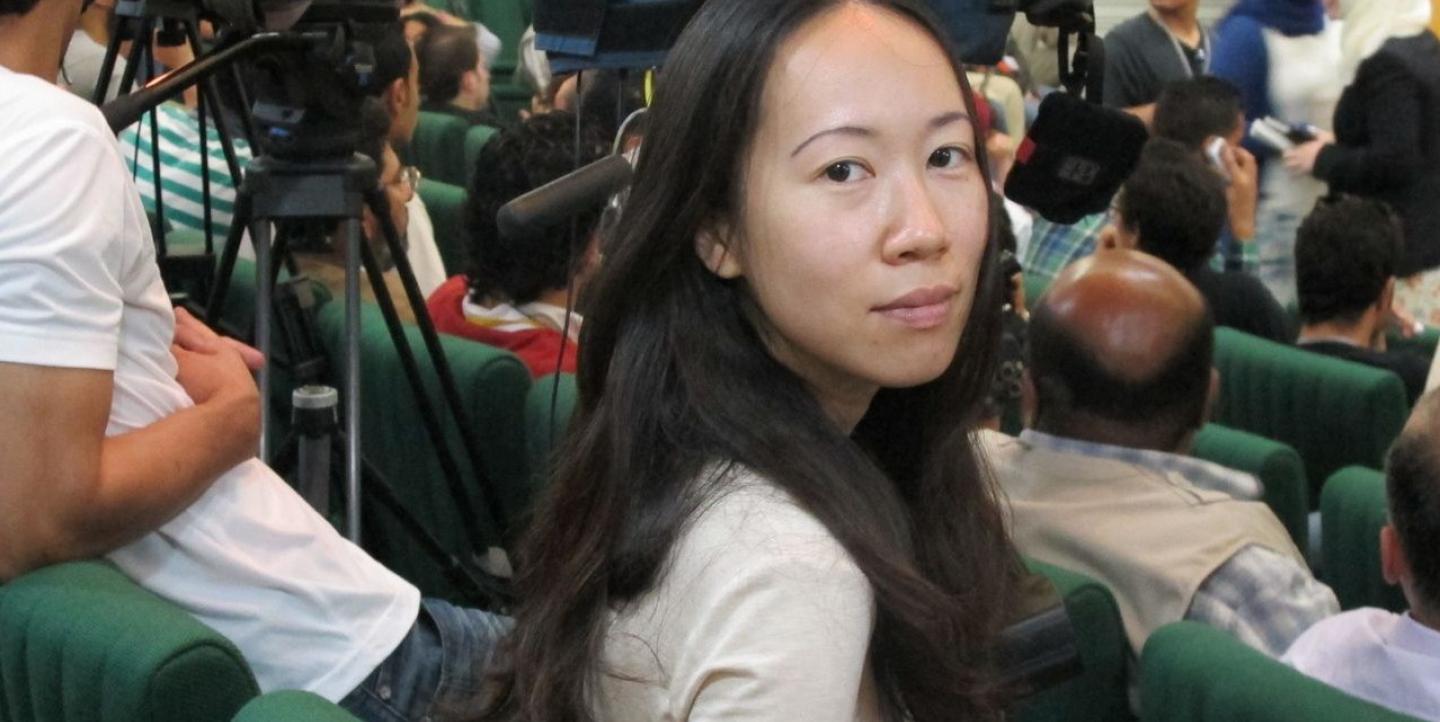Each month, IJNet features an international journalist who exemplifies the profession and has used the site to further his or her career. If you would like to be featured, email a short bio and a paragraph about how you have used IJNet here.
This month's journalist, Lin Meilian of China, is a senior reporter at the Global Times, an English-language newspaper based in Beijing.
She's earned a master's degree in international journalism, reported from war zones in Libya and freelanced for publications like the New York Times. Through IJNet, she earned a World Press Institute Fellowship and attended a Thomson Reuters Foundation in London.
IJNet: How has IJNet helped you?
Lin Meilian: IJNet is like a one-stop shop for me. It has everything I need - opportunities, resources and tips. As an atheist, I use it everyday religiously. It helps me to gather information of training opportunities, tells me the new technology that might make my work easy (like how to use an iPhone to take better photos) and its discussion sessions often give me deeper thoughts about the profession.
IJNet: How do you get your ideas for stories?
LM: I often get story ideas either from the Internet or my sources. China’s rapidly changing society lets Chinese reporters exercise their strengths, such as their ability to find offbeat stories tackling serious subjects that affect large portions of the population. With over 400,000 fans on my Sohu Weibo account, the Chinese version of Twitter, I often get tips and sources from my fans. Moreover, by reading their discussion I have a better understanding what my readers would like to read.
I often profile those who are very active and controversial on the Internet. For example…an assistant professor who has been nicknamed by netizens "the chief representative of the 50 cent party," a pejorative unofficial term for Internet commentators hired by the government to post comments that favor the government policies and who are reportedly paid 5 mao (50 cents in yuan) a post.
IJNet: What has been your best story or work so far?
LM: In my seven years as a journalist reporting from conflict zones and at home, it is difficult to find a best story as many of them were not easy to get in a country full of journalistic walls. My reports from China are just my reports. They came directly from my experiences. An American foreign correspondent might have seen China in a different way.
The truth is, no story is the whole story. I hope our readers can find a Chinese version of the story. For example, in my story Exiled Tibetans, they face an uncertain future about how Dharamsala will cope in a post-Dalai Lama era. Readers might see a different version of Dharamsala. Some stories are hard to write, some are hard to forget.
IJNet: What advice would you give aspiring journalists?
LM: Don’t just sit behind the desk and think you know the world. Go out and meet interesting people. Read a new magazine a month, you might find something surprises you.
IJNet: Are there any training programs or schools that were particularly useful to you?
LM: I attended a weeklong reporting course in Thomson Reuters’ London office in March last year, from which I learned high-level journalistic skills and professional practices for a broad range.
The fellowship with the World Press Institute I had last summer was an eye-opening trip to the United States. Since I came back from the U.S., I have been invited to speak at different universities as a representative of the Global Times English version, including Peking University, the Central University of Finance and Economics and others. I share my experience as a war zone reporter in Libya and my view on American media and Chinese journalism with the students.


